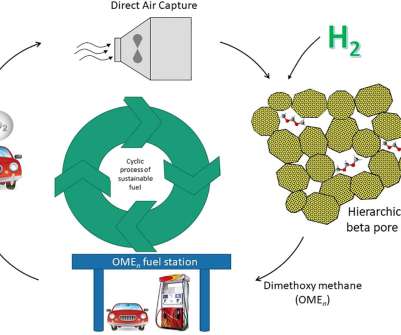WUSTL researchers demonstrate solar-panel-powered microbial electrosynthesis to produce n-butanol from light, CO2 and power
Green Car Congress
NOVEMBER 8, 2021
Researchers at Washington University in St. The resulting biofuel, n -butanol, is a carbon-neutral fuel alternative that can be used in blends with diesel or gasoline. Bai is now a scientist at Amyris, a manufacturer of sustainable ingredients made with synthetic biology.












Let's personalize your content